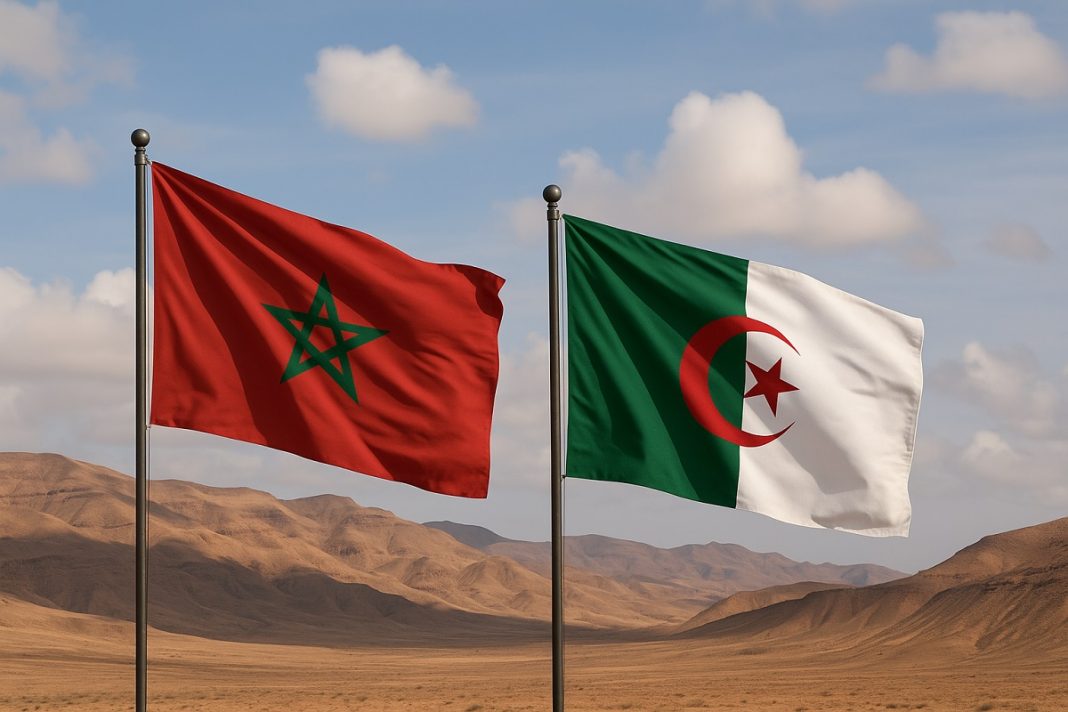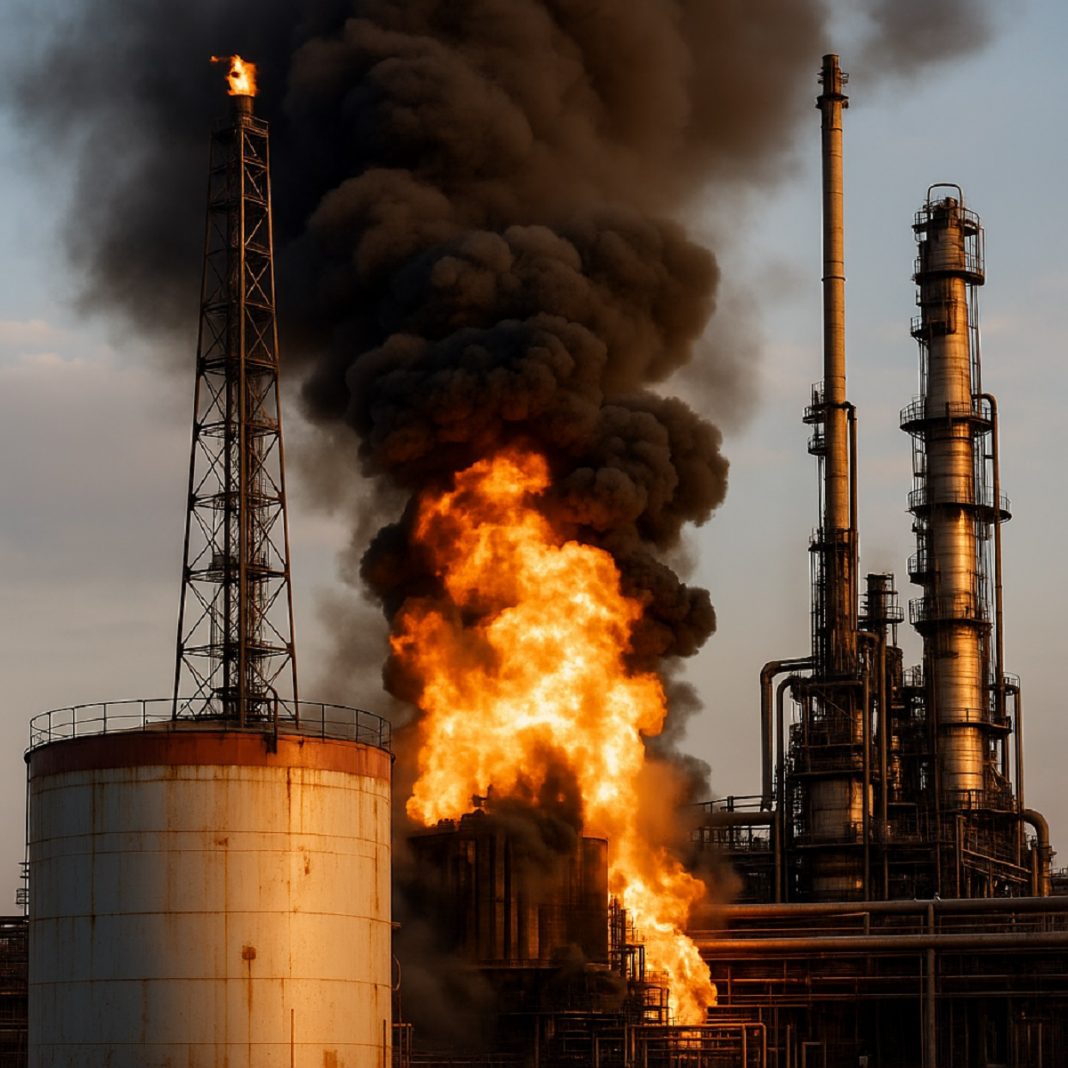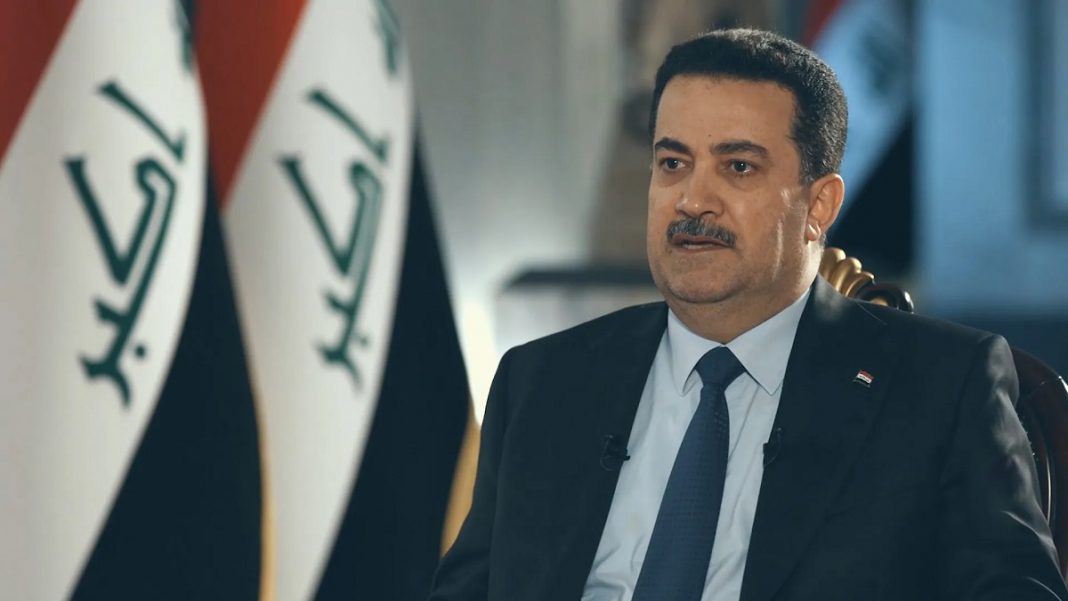Gabriel G Tabarani
The rivalry between Morocco and Algeria has long defined the political weather of North Africa—a stubborn cold front that refuses to lift. For six decades, the two neighbors have been trapped in a zero-sum logic, each convinced that the other’s rise comes at its own expense. But as the United States, Europe, and regional actors circle the Western Sahara issue in search of a “breakthrough,” a more urgent question looms: can the Maghreb finally move beyond its self-defeating rivalry?
The stakes could not be higher. A region of nearly 100 million people sits paralyzed—its borders closed, trade stifled, and integration projects stillborn—even as global powers eye its energy routes, migration corridors, and security partnerships. Washington’s latest effort to broker a deal between Rabat and Algiers may be less about peacemaking than about great-power positioning. Yet, if handled wisely, it could mark the first step toward an overdue Maghreb détente.
The Moroccan-Algerian rivalry was born not of ideology but of geography. After Algeria’s independence in 1962, Morocco’s claims over border territories sparked a brief war the following year. Since then, the Western Sahara dispute has become both cause and pretext—the visible tip of a much deeper contest for regional leadership. Morocco’s monarchy built its legitimacy on defending “territorial integrity,” while Algeria’s military regime cast itself as the champion of revolutionary anti-colonialism and self-determination. These contrasting identities hardened over decades. Rabat aligned with the West, liberalized its economy, and marketed itself as Africa’s bridge to Europe. Algiers clung to sovereignty-first politics and state control, wary of what it sees as Moroccan expansionism and Western manipulation. As their models diverged, so did their ambitions—Morocco investing in continental infrastructure and energy corridors, Algeria in defense and hydrocarbons.
The result is a regional stalemate. The 2021 rupture of diplomatic ties, following Morocco’s normalization with Israel and U.S. recognition of its sovereignty over Western Sahara, crystallized years of mutual suspicion. Since then, border skirmishes, disinformation campaigns, and symbolic provocations have replaced diplomacy. Neither side seeks war, but both are arming as if one were inevitable. In an era of social media populism, this frozen conflict has gone viral. Moroccan and Algerian state media—amplified by troll farms and partisan influencers—wage an unrelenting propaganda war. Algorithms reward outrage; nationalist hashtags trend weekly; insults travel faster than diplomacy. This “toxic web” turns misperception into policy. Every rumor of troop movement becomes proof of aggression; every speech is parsed for hidden threats. The lack of crisis hotlines or formal communication channels leaves both governments vulnerable to miscalculation. In this echo chamber, escalation can be accidental—and irreversible.
Analysts have proposed a simple remedy: a ceasefire in words, not just in arms. If state-controlled outlets stopped the mutual vilification and both governments established a multi-level hotline connecting their foreign ministries, defense departments, and heads of government, they could reduce the risk of misunderstanding. Talk before you tweet could be the most effective confidence-building measure of all. Into this combustible environment steps Washington. The Trump administration’s envoy, Steve Witkoff, recently floated the idea of a Morocco–Algeria “peace deal” within sixty days. It is a bold headline, but the substance remains vague. What can one resolve between two states that aren’t formally at war? The Western Sahara issue remains central, yet insufficient. Even a U.N.-backed autonomy plan—one that allows Morocco to retain sovereignty while granting limited self-rule to Sahrawis—cannot by itself heal the structural rivalry. Still, Washington sees an opening: link Western Sahara to a broader economic and security framework that integrates both countries into a Western-led Maghreb architecture.
That logic is transactional—a deal that serves multiple agendas: burden-sharing with Europe, countering Russian and Chinese influence, and expanding energy corridors to the Mediterranean. For Washington, it’s realpolitik; for Rabat and Algiers, it could be a rare chance to reframe competition into cooperation. Such a roadmap would give both regimes “dual narratives of victory”: Morocco secures recognition of its territorial claim, and Algeria wins investment, prestige, and a face-saving role in Sahel security. Despite the vitriol, both leaderships remain cautious. Restraint is not born of goodwill but of fear. Neither side can afford a war that might consume them politically. Algeria’s military superiority—with half a million troops and a $25 billion defense budget—is offset by Morocco’s advanced Western weaponry and Israeli technology. Any conflict would devastate economies and shatter nationalist myths. Both governments also need calm to court Europe and foreign investors. Morocco is consolidating control over Western Sahara through infrastructure and diplomacy, while Algeria seeks to rebrand as a stable energy partner after years of internal turmoil. For now, these economic imperatives act as guardrails against escalation.
But those guardrails are eroding. Online disinformation, nationalist fervor, and internal power struggles are tightening the spiral. As the Polisario Front grows restless and younger officers on both sides push for more assertive postures, the risk of an accidental clash—a drone strike, a border incident—is no longer theoretical. If the Maghreb’s cold war endures, it is not because solutions are absent but because courage is. The “strength of weakness” keeps both regimes hostage to their own rhetoric. Neither can appear to concede without undermining its domestic legitimacy. Breaking this deadlock requires leadership that can sell compromise as sovereignty—and diplomacy that privileges quiet progress over theatrical gestures. A first step would be pragmatic: reopen communication lines, adopt a joint media code of conduct, and convene regional talks on energy and migration under neutral sponsorship. The United States and the European Union can facilitate, but only Morocco and Algeria can choose détente.
The Maghreb is too vital, too rich, and too interconnected to remain hostage to a 20th-century feud. Reconciliation need not mean affection; coexistence would suffice. What the region needs is not another summit or slogan—it needs a plan to stop the drift toward disaster.
This article was originally published in Arabic on the Asswak Al-Arab website


